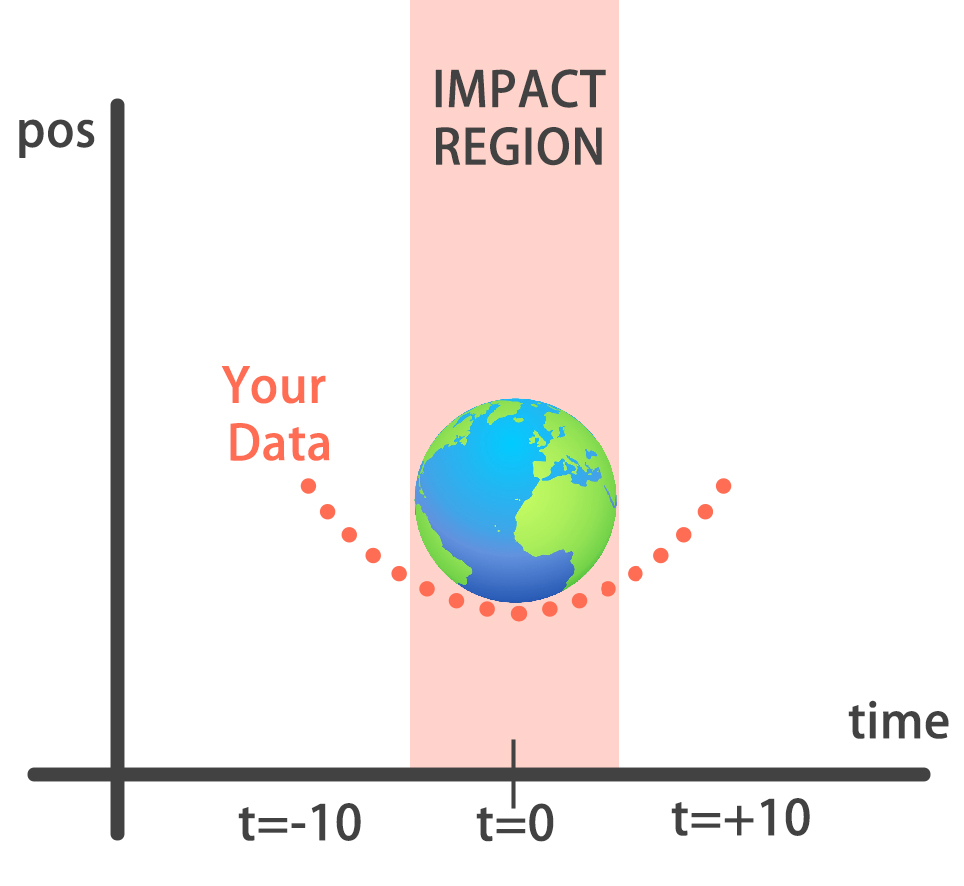Specifying a model
You will build a simple regression model to predict the orbit of the meteor!
Your training data consist of measurements taken at time steps from -10 minutes before the impact region to +10 minutes after. Each time step can be viewed as an X coordinate in our graph, which has an associated position Y for the meteor orbit at that time step.
Note that you can view this problem as approximating a quadratic function via the use of neural networks.

This data is stored in two numpy arrays: one called time_steps , what we call features, and another called y_positions, with the labels.
Go on and build your model! It should be able to predict the y positions for the meteor orbit at future time steps.
Keras Sequential model and Dense layers are available for you to use.
This exercise is part of the course
Introduction to Deep Learning with Keras
Exercise instructions
- Instantiate a
Sequentialmodel. - Add a Dense layer of 50 neurons with an input shape of 1 neuron.
- Add two Dense layers of 50 neurons each and
'relu'activation. - End your model with a Dense layer with a single neuron and no activation.
Hands-on interactive exercise
Have a go at this exercise by completing this sample code.
# Instantiate a Sequential model
model = ____
# Add a Dense layer with 50 neurons and an input of 1 neuron
model.add(____(____, input_shape=(____,), activation='relu'))
# Add two Dense layers with 50 neurons and relu activation
model.add(____(____,____=____))
model.____
# End your model with a Dense layer and no activation
model.____